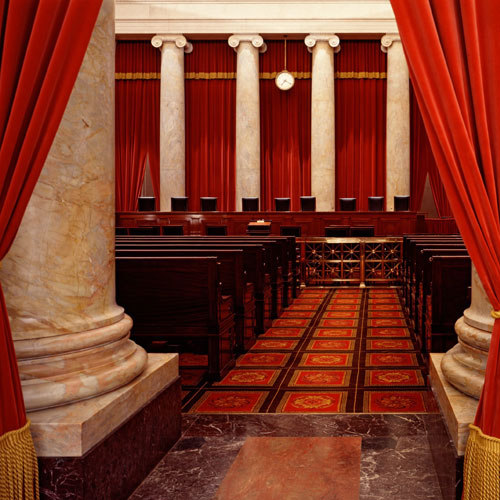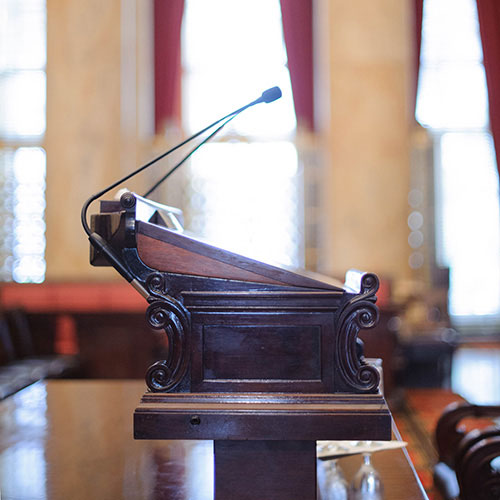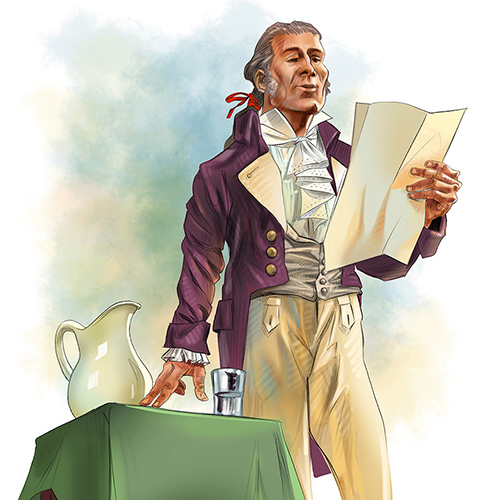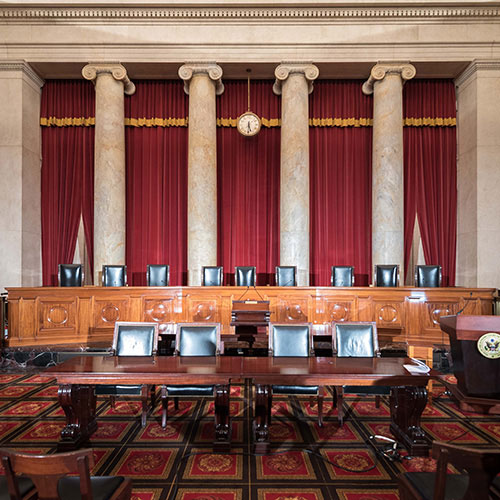
The Society is delighted to announce that Gerard Magliocca is the winner of the Erwin N. Griswold Prize for his book Washington’s Heir: The Life of Justice Bushrod Washington (Oxford University Press, 2022). The Griswold Prize is awarded on an occasional basis when a book about the history of the Supreme Court is considered sufficiently noteworthy to merit that degree of recognition. Washington’s Heir is the first biography of Associate Justice Bushrod Washington, who was George Washington’s extraordinary nephew and inherited his Mount Vernon estate. Justice Washington served as Chief Justice John Marshall’s right-hand man on the Supreme Court for nearly thirty years.
Professor Magliocca is a Distinguished Professor and the Lawrence A. Jegen III Professor at the Indiana University Robert H. McKinney School of Law. He will deliver the Griswold Prize lecture in the Courtroom of the Supreme Court on September 25, 2025, at 6 pm.
The Griswold Prize is a cash award of $5,000 generously funded by Jones Day. It honors Erwin N. Griswold, who served for twenty-one years as Dean of the Harvard Law School. Griswold also had a six-year tenure as Solicitor General of the United States, more than 120 arguments before the Supreme Court of the United States, and a partnership at the law firm of Jones, Day, Reavis & Pogue. Dean Griswold served as the Society’s Chairman from 1987 until his death in 1994.

The three judges on the Griswold Prize Committee are Lucas Morel, D. Grier Stephenson, Jr., and Melvin I. Urofsky. According to Professor Urofsky, Magliocca’s book engenders a major reassessment of Justice Washington’s contributions to the law:
“For a very long time, most historians dismissed Bushrod Washington as Chief Justice John Marshall’s puppet, someone who always voted as Marshall wanted. Magliocca does a fine job making the point that although Marshall and Bushrod Washington often agreed, and had the same nationalistic outlook, Washington differed on important issues, and wrote some opinions, especially Corfield v. Coryell, that would have a major impact later in the framing of the Fourteenth Amendment. This is new, and Magliocca supports his argument with good research as well as a careful parsing of some of Washington’s opinions.”




